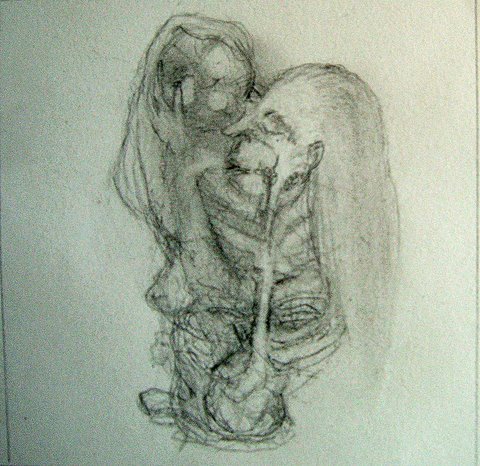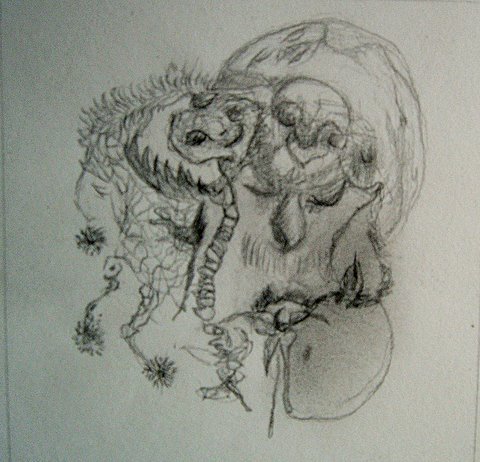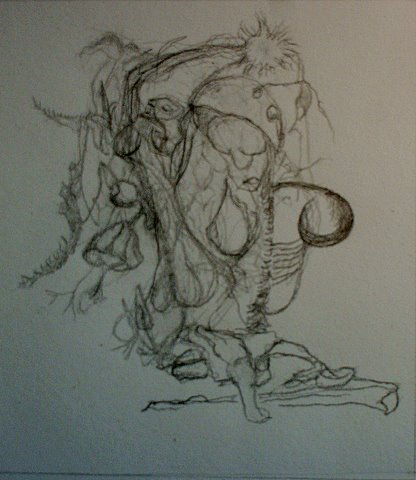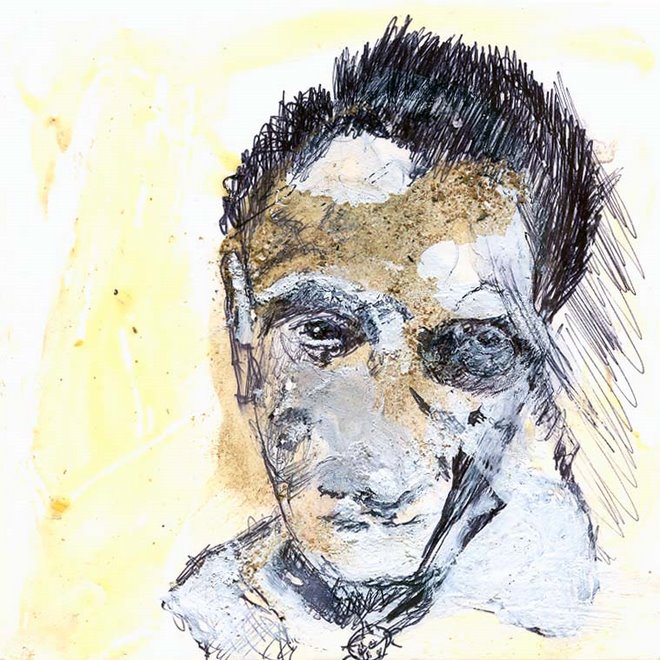 |
| Luigi Nono, the painter. 1850 - 1918 |
Minimalist music at first blush seems quite controversial
and then over the years increasingly appears pleasing to the mainstream popular palate. Some will never like it for their individual, peculiar reasons but it no longer appears in any way threatening to the status quo. Liking it at first and then
growing a bit tired of it, on the whole, seems to have been my own trajectory. Those
first moments of luminous experience with Wim Mertens and Meredith Monk
(records or cassettes) in my first real (lonely) apartment in San Francisco
left me with the feeling of having gained access to a special world few understood
and I rested for a while inside the belief that I had transcended, flown all previous social
barriers, entered the classless haven of pure music. My little utopian apartment, three rooms on 14th street, between Guerrero and Valencia, going for 235 bucks a month, cold, in 1986, in an ex-hotel once owned by John Hammond:
that would be where I discovered the avocado tree that would nourish me during
hardest times and I'd listen to the cassette deck plugged into my guitar amplifier. The same apartment, exactly the same, where I will find myself in 2003, the place I would go to
visit a friend recently re-located from Denver, a software designer named Biaggio Azzarelli, who made a killing by doing a Eno-esque start up sound for a
program (now we call them apps) for one of the big companies. Biaggio was
paying 1,600 for the same three rooms. I looked and saw the stump of the avocado
tree three floors down through the grill of the fire escape. It was wonderful to encounter the new friend in my old place of residence and he was doing well indeed,
his three rooms minimally adorned and clean as a whistle.
Most people know how
quickly San Francisco changed after the dot com boom but my memory also
stretches back to sitting at Cafe Trieste with the poets, the two Jacks not Keruoac, Jacks Hirschman and Micheline, probably in 1989, when I worked in North Beach, listening to them muse into grumbling how the town had gotten white-washed. What did I know? I walked around the corner stumbled into Bob Kaufman, eighty-sixed from every bar in the hood, shook hands, nodded, since he didn't speak much in those days. And Ferlinghetti was at the desk upstairs, just over there. It seemed like the greatest place on earth. Sun Ra at Mabuhay Gardens, saw him buying cookies for the Arkestra, greeted and spoke to him too. Little did any of us know what was to
arrive with the bridge and tunnel crowds and the displacement of people from
the old housing projects, some winding up rough out on the streets quite often. Minimalism has
many faces and one of those faces belonged to the homeless Julius Eastman, although on the
other side of the country -- but his minimalism left a very troubled stain on the
white and white-washed world which surfaced many years after his demise in a recent scandal about the
titles of his pieces, the ones which left the history of his people dangling
uncomfortably by the roots. for example: https://www.youtube.com/watch?v=6_QGQcKq1ik
I started out with mentioning minimalist music for a reason. And that is because eventually, while listening to Julius Eastman's music last year it struck me that he alone perhaps among composers who might get installed into this genre retains within his music the tension of the class struggle and that the easy commercialization and growing popularity of all the others was precisely because this music in other hands could jettison association with social issues or address them with a smile somehow, since in the trance of repetition, bliss removes the suffering of hunger and social inequality. It is the fact that people can find the music pleasing, diverting that allows it to become popular, I guess.
a short video about luigi nono
https://www.youtube.com/watch?v=HkqxGEDqaRk
the thought-long wound, the open wound
When listening to the music of Luigi Nono again a few days ago I
realized that what was essential in his art is the tension created by the
rending open of space, these abyssal spaces between us, between people of
different classes, ethnicities, between art and life, between the human and the other creatures, between the
human and the storm of the raw elements. One can actually hear in the orchestrations
the voices of people straining to work together, divided, united by their common
despair, their common hope, anger, frustration and longing for change. The music of Luigi Nono
stands at that crossroads when composers and artists felt the need to bear
witness (or withness) to the people's struggles and made works that were
classically speaking difficult. Not difficult for the sake of being difficult
but in order function as an index of sorts, as a flashing sign of danger, a
flare sent up in an emergency. Much of this sense of music as having social
message nowadays is bound up with the testimonials of rap music, some new punk (about which I know zilch), and relies
mainly on a clever use of words to create the tension of the message which is
of course easy to digest with the funky beat going on and very little of this
social advocacy depends of tension created in the instrumental aspect of the
songs (Death Grips perhaps the exception). Music like Nono's still disturbs many, many people. The tension is related to
the coming of storms and the fact of losing personal control, deprived of liberty and choice. It remains haunting and ominous. I am
no longer certain when it occurred to me that most avant-garde music, even the
most quiet, reductionist or the most jarringly microtonal had lost the need to
relate it's tension to some sense of social advocacy but it did in fact happen
somewhere along the line. Now all the music we hear is largely within the realm
of entertainment and the sense of social advocacy has taken up residency by and
large in the logos again and wanders in the forests of story-telling. Even if it's like me, talking to myself.
short film about composer Luigi Nono
article in ARTnews about Julius Eastman's incendiary titles by composer Mary Jane Leach
http://www.artnews.com/2019/09/13/julius-eastman-incendiary-titles/?fbclid=IwAR2WnQU4puizH8BGN0iNrk9jBarqsESITlAbZbRyGKDmJ5K8qBW9UNI5CWk












No comments:
Post a Comment